i want to talk with other yuwaalaraay about the discrepancies in our language history
UNDERSTANDING BARRIYAY
xxx
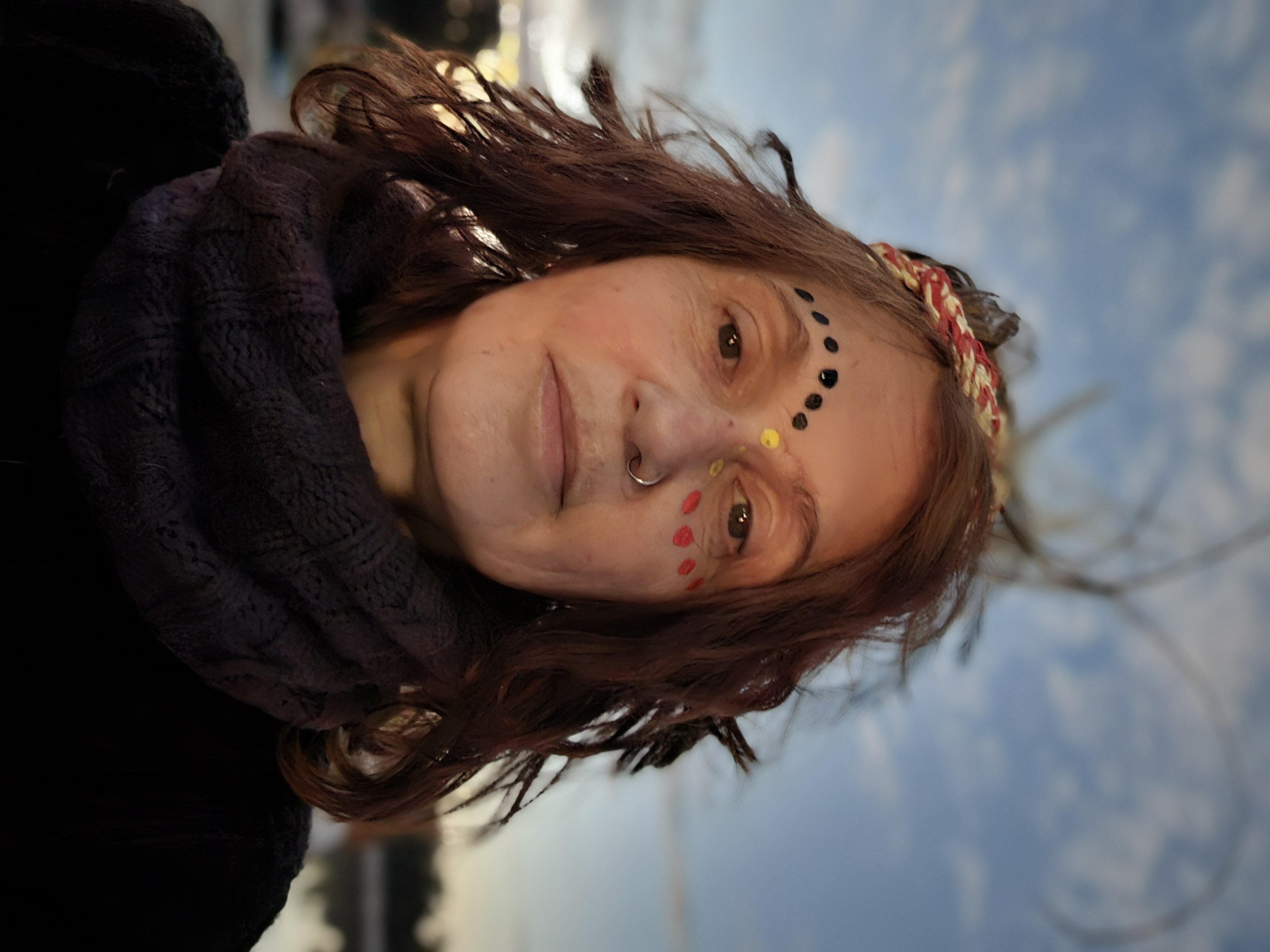
yaama and welcome to yaamanda yanay barriayaygu. Information about the project is below. I thought I would start with how first so if doesn't suit you to ??? your time, you don't have to read through to get to that part. I will talk of the how in more detail but basically a group of us (hoping for 10 to 20) and using some questions I have put together, we are going to review some texts that published what our Ancestors shared, but might not have ????.
photo of king with hat above .. my gut tells me that theres not a lot of joy happening hereI used language to name it to remind me of the multiple authorities necessary to understand a story, in that no one view can give a full picture and each view informs the complete picture. When revisiting history, my goal is not to rewrite it or inflate it or cut parts out i don't like, I am exposinge all the reasons why it became that way because when we know how something was put together, we can then pull it apart
WHAT RECORDS WILL BE USED
there are a few options being considered, we're down to these four as together they span two centuries, have all been under the research microscope by non Yuwaalaraay person at some stage and have all had some inclusion in present language materials. Note that we don't review the entire books, just parts of them
POSSIBLE TEXTS
text
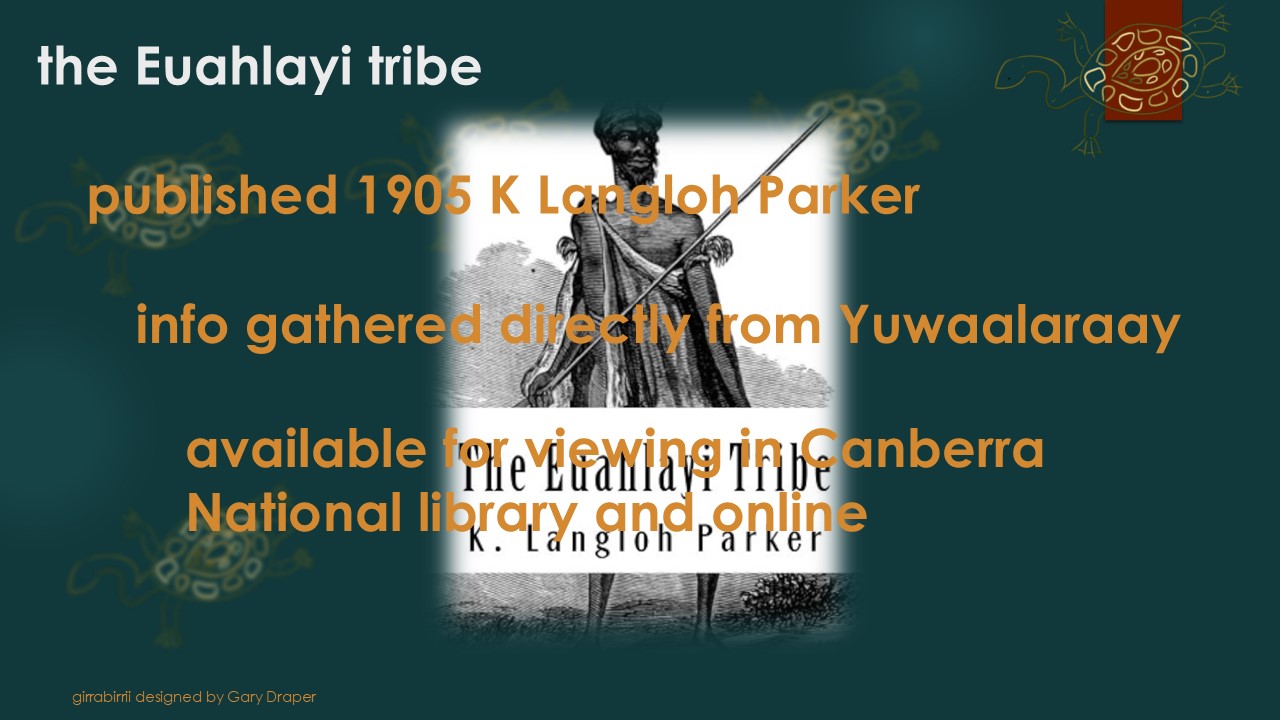
text
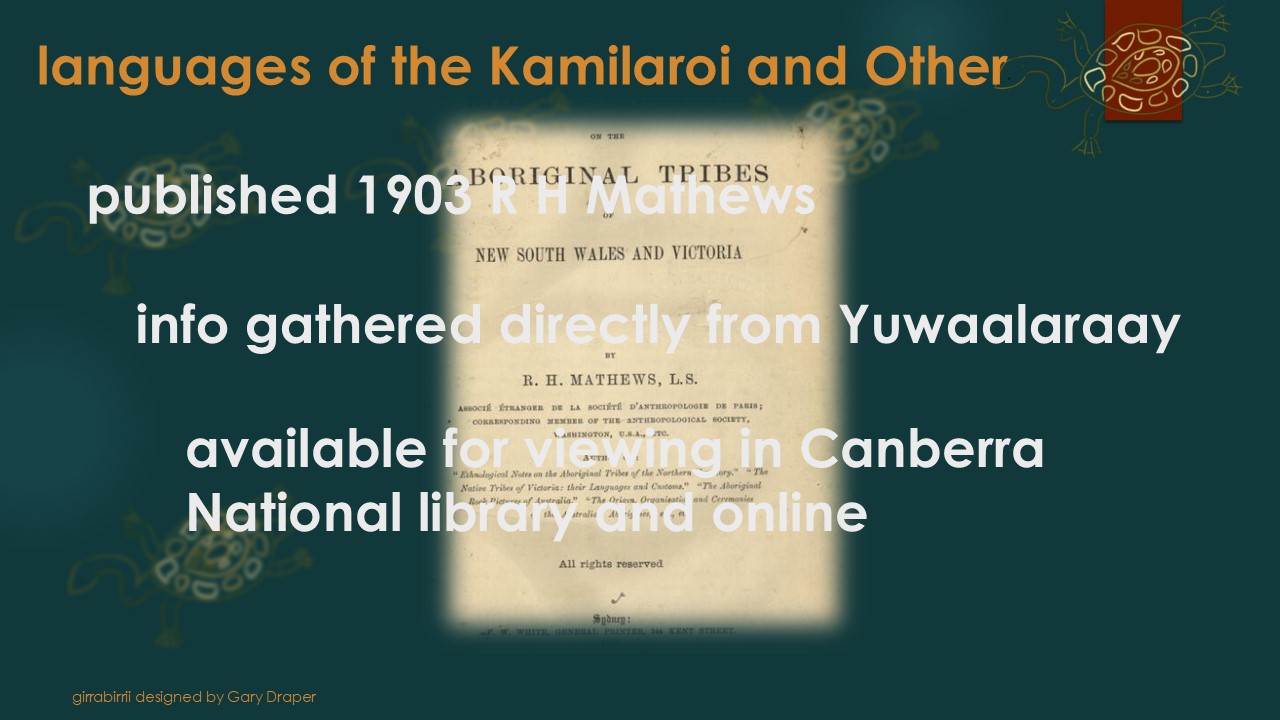
text
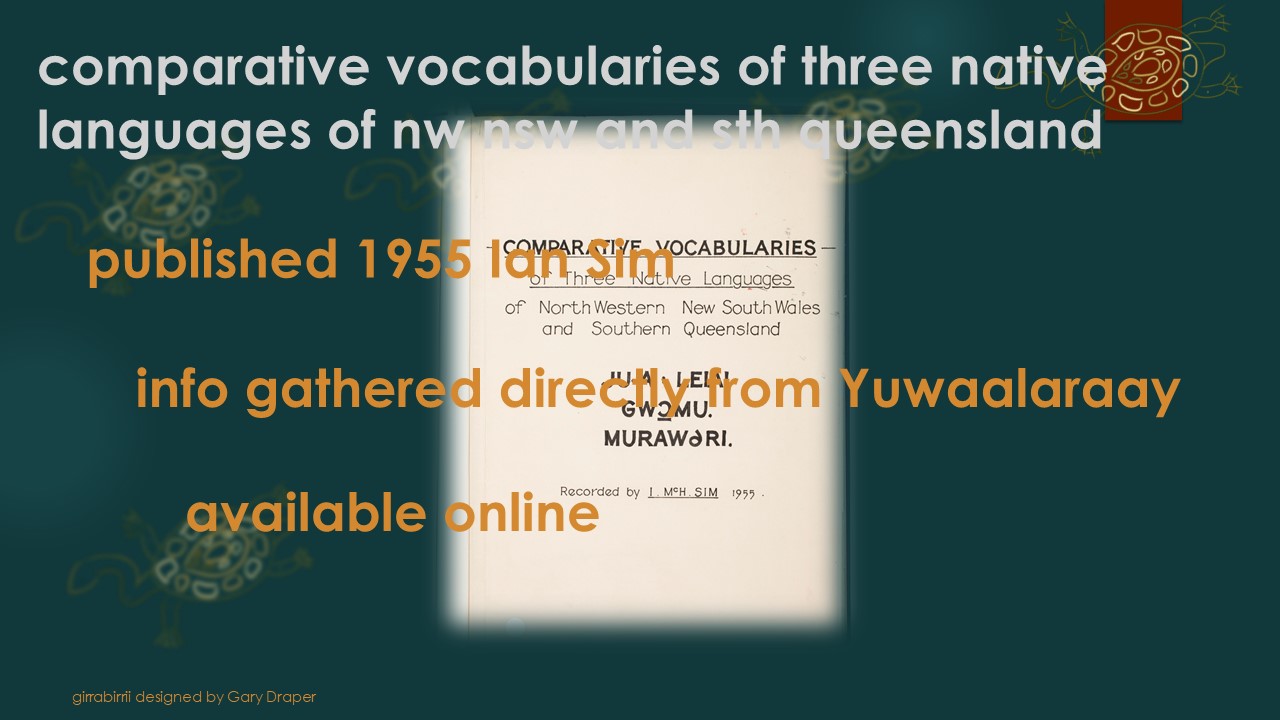
text
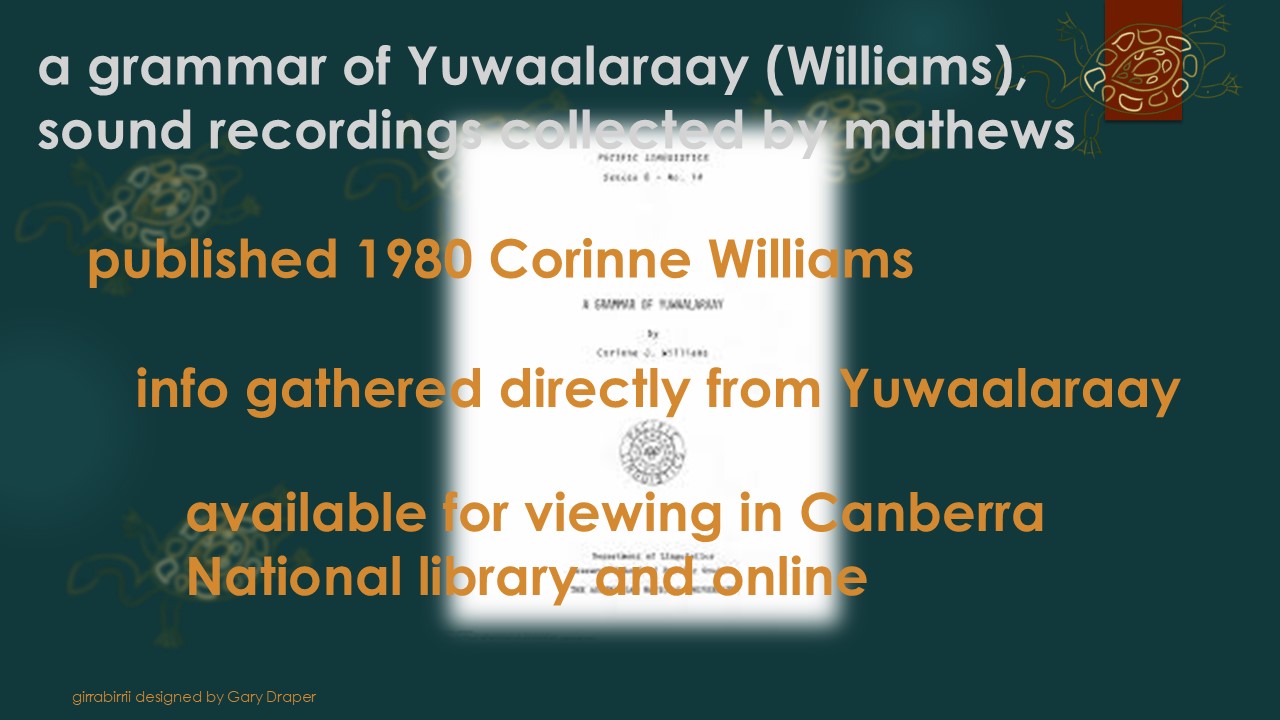
INDIGENOUS RESEARCH IS GATHERING
Indigenous Research is gathering, it does not find new but brings forward what has always been. It requires PASSION to push past the wounds and not get lost in accusation and retribution, TRANSPARENCY to fairly steer the exploration of methods that facilitate that kind of becoming, and CONNECTION to unlock what is of use for all of us to know rather than speak on anyone's behalf. As an Indigenous Researcher, I am louder, I am less afraid
WHY I THINK IT MATTERS
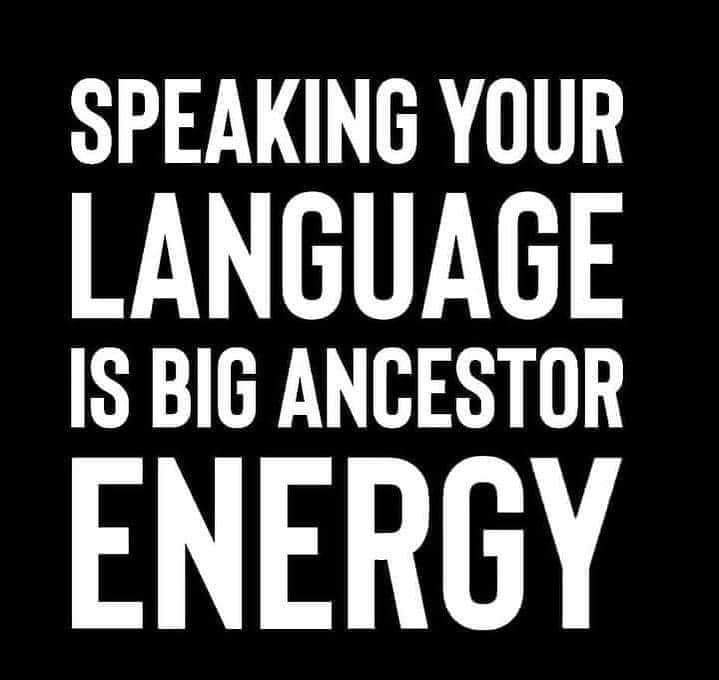 and here is the next story
and here is the next story
Though the research question begins with ARE ALTERNATIVE UNDERSTANDINGS POSSIBLE, I am also interested in what happens when this request is brought, i.e. analyse historical conclusions, to us the Yuwaalaraay people with our history and capacity. It will strengthen Indigenous individual and community pride through contributing to historical interpretation, and recognise the diversity in Australian Indigenous language and geographic groups.
Our languages were collected because they thought we would die out
- , and you and us and them leant on that knowledge to live in the world. Institutional knowledge making, and how this holds fixed certain stories of self, but also of peoples. has the impact of clouding future studies and ??? of future knowledge holders.
but new set of relationship .. appropriate practices associated with the language are lived between you and me and the others
While there may be truth that we do not, in the English sense of the terms, collect things or archive things or record things, we do things and we get together and share things. Doing research is an important part of the practice.
The central theme that threads throughout our (research) practices is whatever the opposite of “Othering” is. A widely used term in reference to exclusion of a people, first blessed upon me in Evans, tebrakunna country and Lee (2022). I am yet to find an exact description as it ascends inclusion and respect.
Combined with Wilson (2008) RESEARCH CONDUCTED ON AND BY INDIGENOUS PEOPLES - that I will extend my exploration into other Yuwaalaraay and Muruwari texts. - but the primary source was not utilised for clarification, only for collection
HEADING
In Australia 2017, the New South Wales Government enacted the Aboriginal Languages Act, proclaiming our right to control the growth and nurturing of our languages. But from what form are we now nurturing? Like our Stolen Generations, languages were taken and reared to fit the colonised world. They were not swaddled in Indigenous Data Sovereignty when utilised by Colonisers to navigate our continent. They were not framed in Ancestral context when analysed in anthropological periodicals and they were not able to be given wholly when Australian laws forced them to be spoken in secret to be passed on. While it is celebratory that our data warriors have made known the damage of colonised research, the availability of unsubstantiated findings continue to be delivered as truth. It is a restricted view, and as a modern Yuwaalaraay Yinarr learning language I ask myself if that means I am a carrier of that condensed colonised version of my people?
This research invites participants to explore the original language collections by asking Yaamanda yanay barriyaygu? (Will you come to the window). Titled Barriyay for short, the framework views texts from four vantage points in time and being. Utilising constructivist approaches informed by Narrative Practice, Standpoint Theory, and Indigenous Knowledge Methods, the framework aims to keep open a dialogue about how data might be revised, disappear, or otherwise be reconfigured by prioritising in-place relations of research work and keeping active the social practices of kin that keeps knowledge what it is. In Barriyay, participants do not speak for their Ancestors but contribute alongside them making visible their social, material, and semantic configurations that reveal and propose different requirements for authorisation and continuation of stories.
It is an an emergent empirical analysis supported by Aboriginal Yarning, a form of knowledge making in a collective trust where people lean on multiple senses, stories, histories and individual particularities to connect to and build upon collective traditions. Barriyay is being utilised to support clients in the therapy space to deconstruct historical trauma. The workshop will be delivered by Yuwaalaraay Yinarr, Narrative Therapist and PHD candidate Jedison Wells. More information on the tool and the research study can be found at https://www.hobajing.com.au/barriyayyaamanda/.
x A summary of the project is below, and if you're interested in how I came to be the person tending this research, please click here ours is an oral language, spelling is a wanda thing. If you have researched documents on our people, you may have come across the words Yuwaalaraay, Ualarai, Eahurlari and other forms of spelling. SPELLING DOES NOT MATTER IN AN ORAL LANGUAGE. But it can matter when we are researching because wanda used various forms to describe us
HEADING
add this link to the research website Please see the below link for your CoC recording from yesterday: [https://charlesdarwinuni.zoom.us/rec/share/ECKuEIp6je2qF5pJG7R8MzSKp4fhJYDAaliRjtf8S_U6KQqZ5jPyNeAEwurxycVe.npj759DC2umTWTOw?startTime=1724113807000] Passcode: $2YJk@XT
WHAT MAKES ME ANY DIFFERENT
I am accountable, not like Mitchell – to the framework of acceptable knowledge collection of the time. Not like Oates – a non indigi incorporating and acknowledging respective practices. But like fellow Yuwaalaraay, who have held the knowledge up against the light and saw different kinds of knowers and practices of knowing that were mutually present, and never acknowledged.
# why me - gut response - respect for experience and education - deeply embedded instinctual connection to something that gives me information, gives me keys on how to go forward - i am uniquely suited to the project - mention language work
PHD QUESTION
are alternative understandings possible .. we are looking for the voices of Ancestors that were not heard or ignored
when Euhalari descendants deconstruct historical texts .. we a together, we are going to step into the role of researcher using what we know to be the systems and practices of what is knowledge and the forms of authority that go with that
written about their Ancestors by non-indigenous researchers .. the specific texts are those where a non Indigenous person collected language directly from a Yuwaalaraay Ancestor, or through a Yuwaalaraay translator, and probably something from the late 1800s and the mid to late 1900s
using the barriyay framework? .. barriyay will guide us in where to look rather than in how to look, i.e. AS IT WAS KNOWN, AS IT TOLD, AS IT IS KNOWN, AS IT IS TOLD
WHY ONLY YUWAALARAAY, WHY NOT MURUWARI TOO
i have every intention of doing the same with Muruwari, but don't quite have the fluency in the language. I would have preferred to focus on both languages
yaama, gayrr ngaya djidjidan. brisbane-da queensland gaanga-nhi ngaya. ngaya gi-yaa-nha gaay guwaa-li yuwaalaraay-gu ngayagay english-gu gaay-a hello, myname is jedison. I was born in brisbane in queensland and I am going to talk in yuwaalaraay and english nhama bubaa-dhi gary johnston this is my father gary johnston wynnum brisbane-da gaangi-nhi nguru he was born in wynnum in queensland nhama gunii-dhi catherine wilson this is my mother catherine wilson bellshill-da scotland gaangi-nhi nguru she was born in bellshill in scotland nhama dhilaagaah-dhi colin johnston this is my grandfather colin johnston cunnamulla-da brisbane gaangi-nhi nguru he was born in cunnamulla in queensland garrimaay burrulbidi ngaya ada hooper ada hooper is my great grandmother ?? her life began on tinnenburra station and many of my great aunts and uncles were born and raised there ada’s parents were samuel and lizzie hooper, and it is from them that the most reliable knowledgge comes about our lands. samuel being Yuwaalaraay and lizzie being Muruwari. These are best guesses based on wisdom handed down through other families, records and our own mob yarns. If your ancestors are from Australian Aboriginal and/or Torres Strait Islander lands, you may already know of the colinisation methods used to move us, reduce us and assimilate us. And, as i’m finding out from this project, just because something was recorded by a whitefella, doesn’t make it true. wuu-nhi-baa ngaya yinarr-baa aboriginality is my inheritance ngaya dhuwi dhurra-li WITH gaay-biyaay, girruu-biyaay ngayagay gaay guwaa-lda-ndaay i express my identity with words, truth and story telling waan ngaya dhayndalmuu narrative gaay wuu-na dhayn-gu gaay-a gamil guwaa-y my work as a narrative counsellor gives voice to peoples stories that have not been told buwabil ngaarribu-dhi ngaya yuwaalaraay language is my legacy ngaya wuu-na biiba-gal balal ngiyaningu dhayn-gu gaay i give voice to the unwritten pages of our people bidjaay nhama yuwaalaraay ganungunda biiba-gal yuwaalaraay is the ink to those pages ngarragaa bidjaay balal alas the ink is dry nhama ngarray .. yilambiyal ngaya yuwaalaraay dhiirra-nhi biibabiiba-nhi old you see in the past, I learned language from historical books gaadhal ngaya-bala gi-la-nhi but I was only a parrot gaay gawaa-y guwaa-li yiyal nganha dhirra-li repetition only teaches me to say language ngaya-laa bamba dhirra-nhi dhilaagaa ? yinarraa? TAFE-gu then I learnt properly from Elders at TAFE ngaya yilaambiyal-gu gaay giirruu yuwaalaraay winanga-y-la-nha I began to understand yuwaalaraay purpose and reason ngaya yilaambiyal-gu yuwaalaraay dhubaanma-y I began to tell language then I went back to the history books and their purpose and reason did not make sense ngarranma-li-badhaay ngaya nginuhna let me show you You can contact me by phone, text and marco polo on 043 555 0084, email at girrabirrii@proton.me or through messenger: jedda wells. Also, if you are passing through the lands of the Gundungurra (Robertson) we can catch up face to face and every few months I make the trek through Tubbagah (Dubbo), Yuwaalaraay (Lightning Ridge), Bigambul (Goondiwindi), Turrbal and Jagera (Brisbane), Kunja (Cunnamulla) and Muruwarri throughout that trek.
some info here